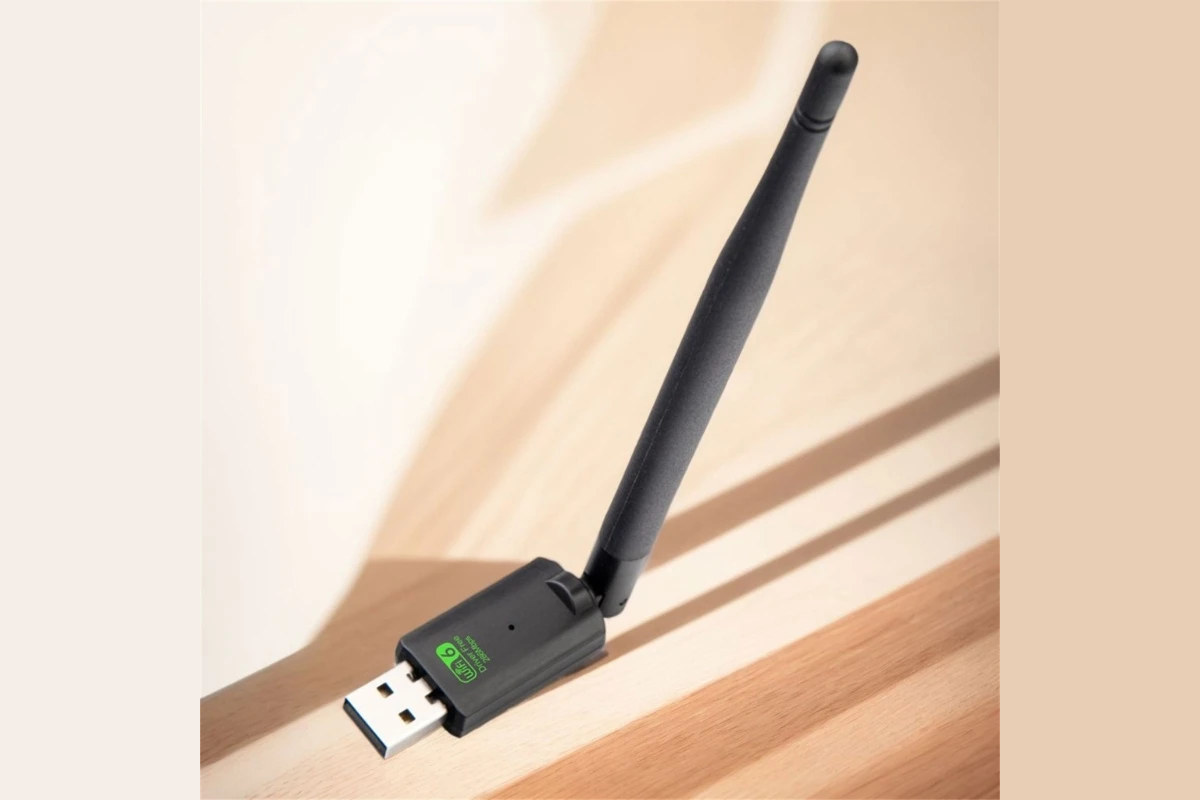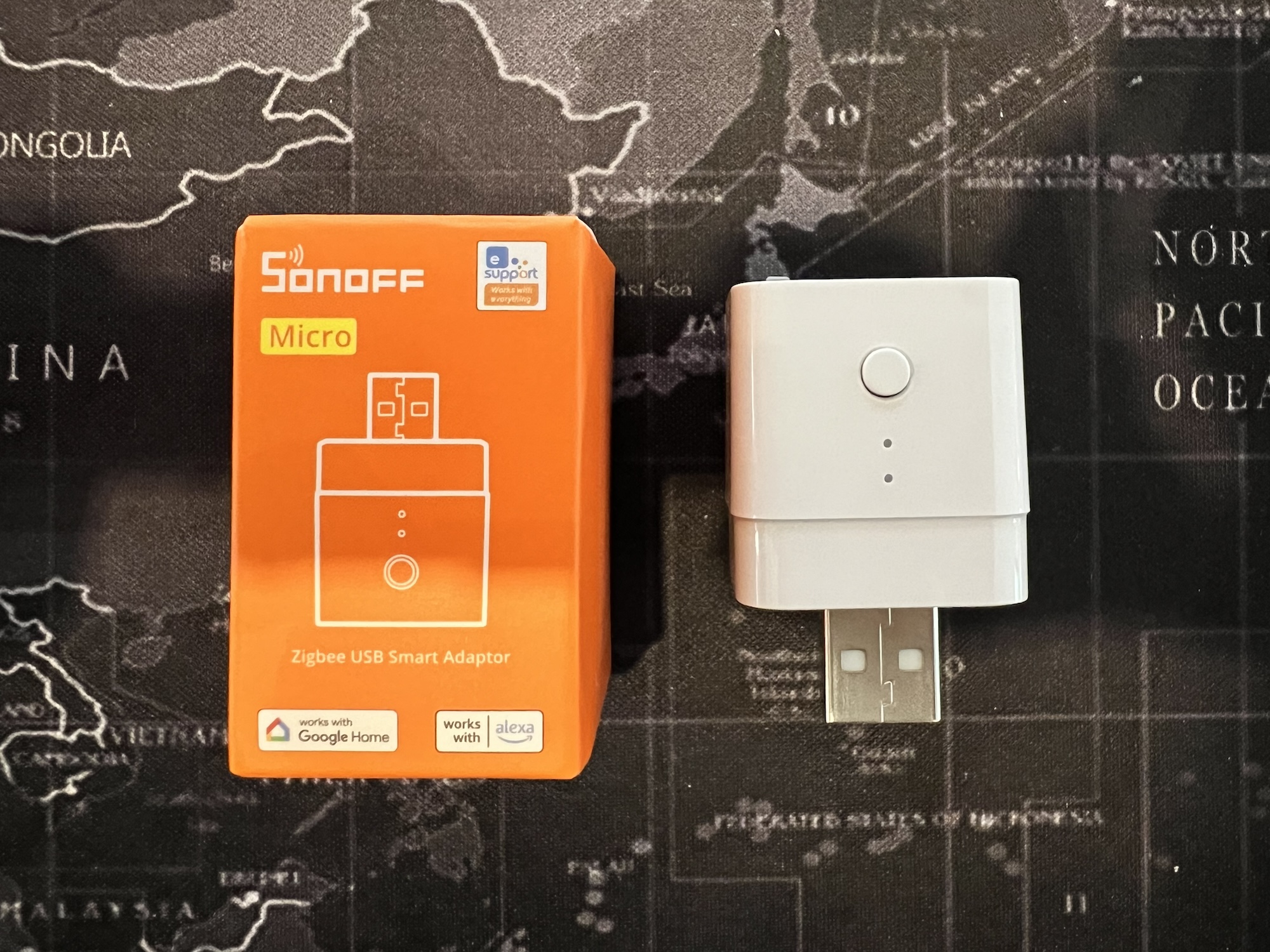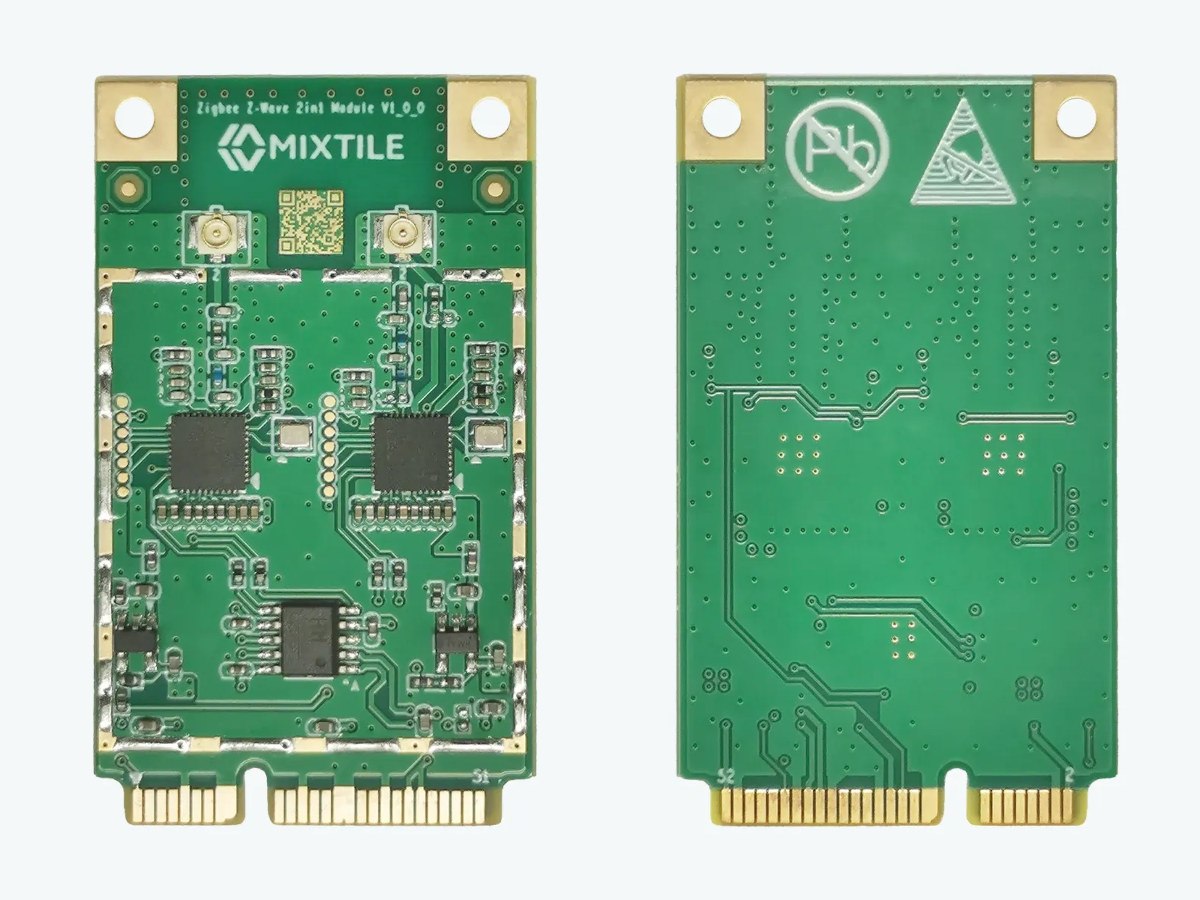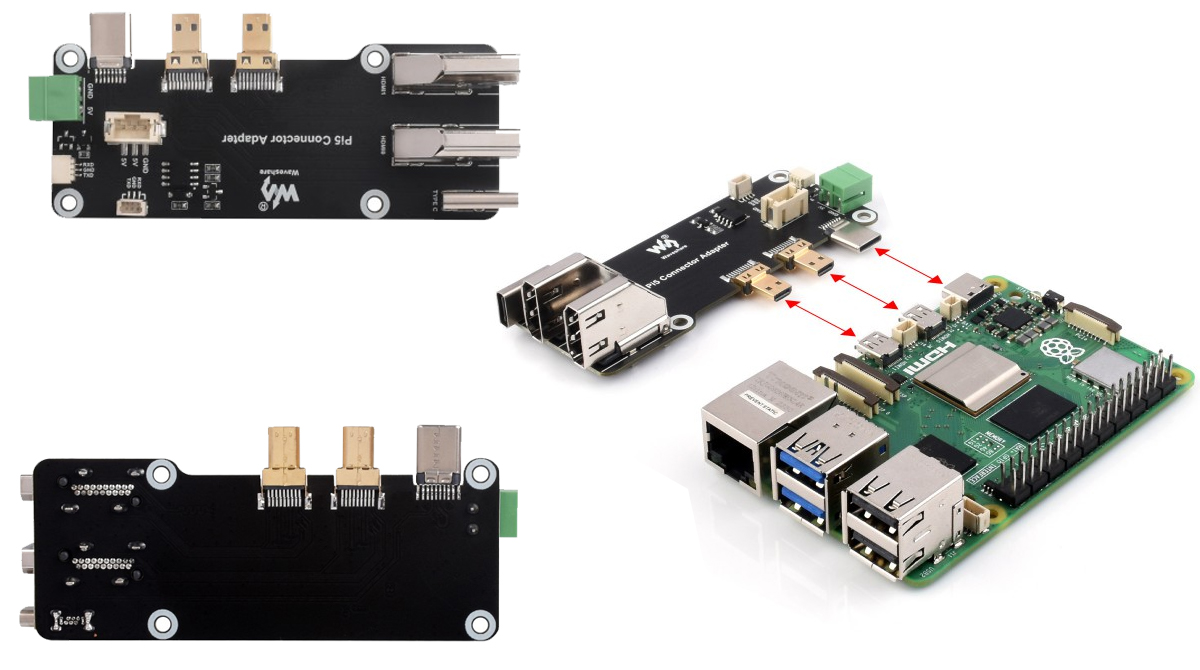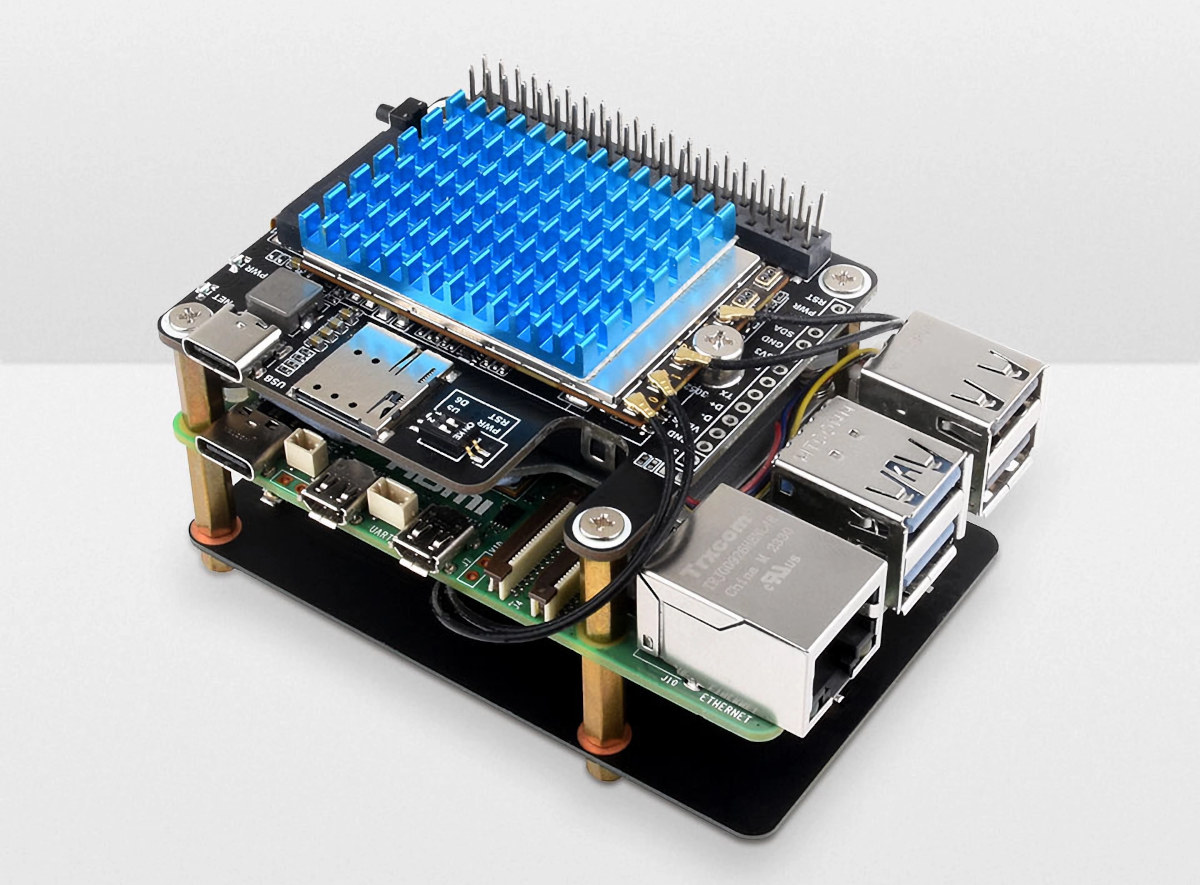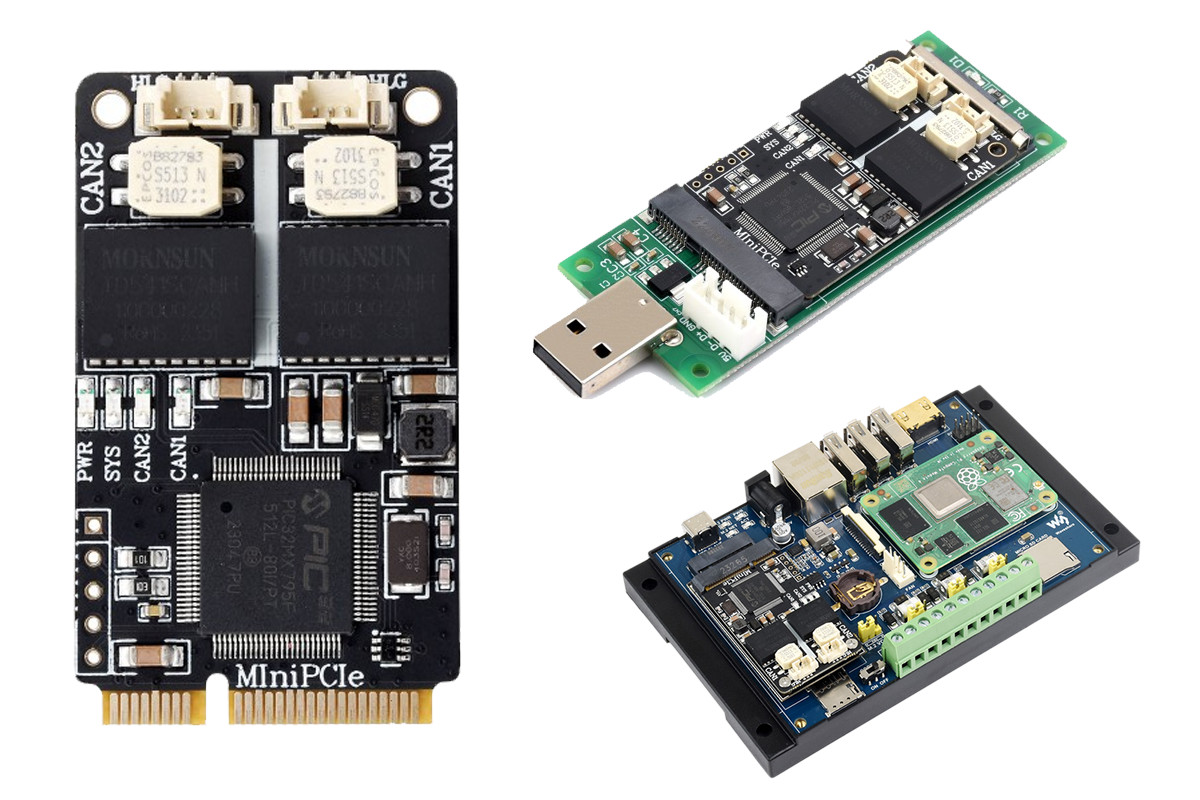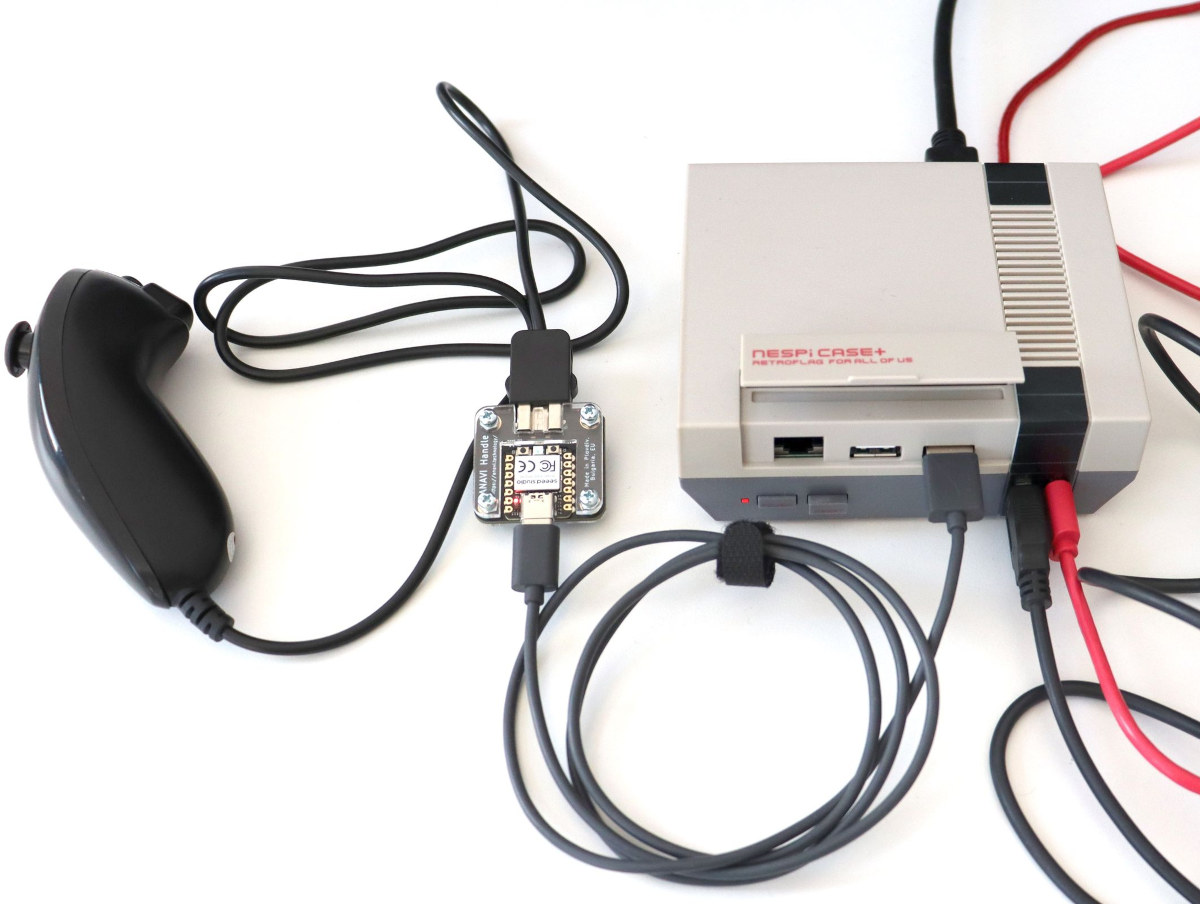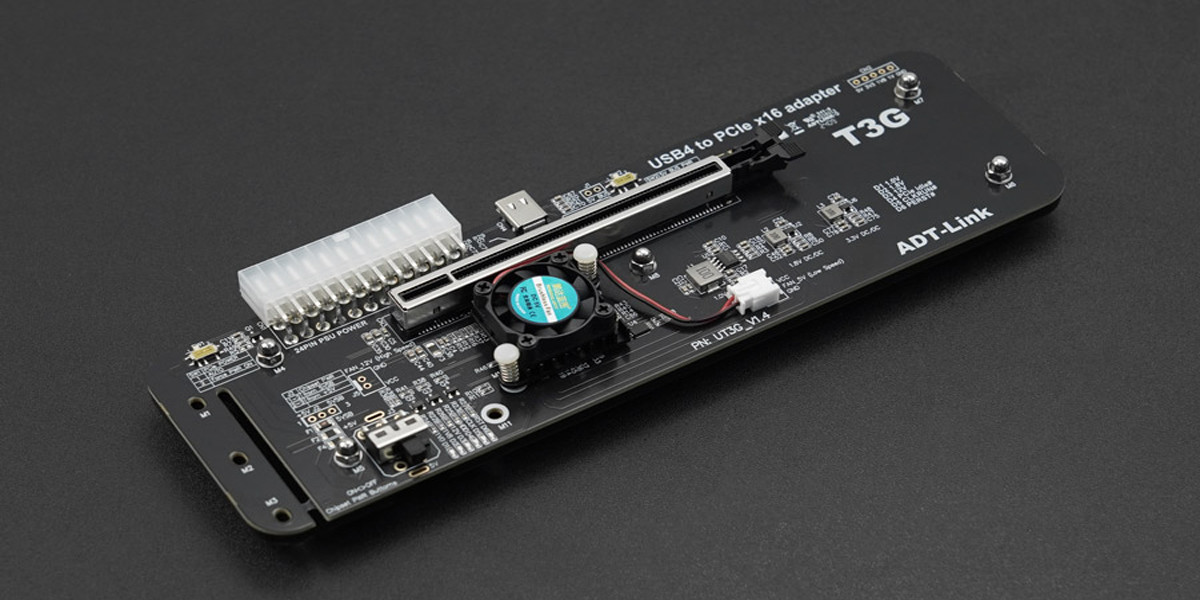Adding networking capabilities to a computer or SBC has never been cheaper, as we’ve just written about a $12 M.2 RTL8126 5GbE module, and now I’ve come across a WiFi 6 USB adapter based on AIC8800 chipset that sells for under $3 on Aliexpress. I found out about it after we published an article about the Luckfox Pico Ultra W SBC that comes with a 2.4 GHz WiFi 6 and Bluetooth 5.2 module that happens to be based on an AIC8800DC module. Upon further investigation, I discovered some ultra-cheap WiFi 6 USB dongles were available, but with some caveats such as the lack of 5 GHz support and a speed limited to 300 Mbps. But it can still be interesting, so let’s find out. Specifications: Chipset – AICSemi AIC8800 WiFi – 2.4 GHz 802.11ax WiFi 6 up to 286.8 Mbps Tx power – 20dBm Features – MU-MIMO, OFDMA Operating modes […]
SONOFF ZBMicro Review – A Micro Zigbee USB Smart Adapter tested with eWelink and Home Assistant
We’ve just published the review of the SONOFF Zigbee Bridge Ultra, and as promised the next one will be the SONOFF Micro Zigbee USB Smart Adapter (ZBMicro for short). When we first received the device we wondered what improvements could be made beyond the first Wi-Fi version as it’s so small. However, after using it for a while, we found it to be a pretty good product. Besides functioning as a smart USB switch for turning devices on and off, it supports fast charging, data transfers, and can act as a Zigbee router. Additionally, it can be used with other platforms that adhere to the Zigbee 3.0 standard. From our market observations, competing devices similar to the ZBMicro lack features like fast charging or switching capabilities, making the SONOFF USB adapter more appealing compared to competitors at a similar price point. Compared to its predecessor (WiFi version), the ZBMicro has […]
$20 Zigbee & Z-Wave mPCIe module targets Home Assistant gateways
Mixtile’s “2-in-1 Zigbee & Z-Wave mPCIe module” is a relatively inexpensive way to add Zigbee and Z-Wave connectivity to a Home Assistant server without having USB dongles sticking out of the server and taking some of its spare USB ports. The module is compatible with any computer, gateway, or SBC with a spare mini PCIe socket featuring a USB 2.0 interface such as Rockchip RK3568-powered Mixtile Edge 2 Kit gateway. You’ll also need some way of mounting the antennas after connecting them to the IPEX-1 antenna connectors on the module, the Edge 2 Kit comes with multiple antenna holes. Mixtile 2-in-1 Zigbee & Z-Wave mPCIe module specifications: Wireless MCUs Silabs EFR32MG24 Arm Cortex-M33 @ 78.0 MHz with 256 kB RAM, 1536 kB flash Radio Frequency – 2.4 GHz (802.15.4 radio) TX Power – up to +19.5 dBm RX sensitivity – -105.4 dBm at 250 kbps Protocols – Zigbee, Matter, Thread […]
Dual Micro HDMI to HDMI adapter supports Raspberry Pi 5/4B, offers multiple power options
Waveshare Pi5 Connector Adapter is a compact dual Micro HDMI to HDMI adapter for the Raspberry Pi 5 or Pi 4B that connects to the micro HDMI and USB-C ports simultaneously and provides access to two full-sized HDMI ports. The PCB also features a USB-C port and a screw terminal for power. Previously, we have written about many unique waveshare products, including Waveshare 2-CH CAN MiniPCIe, the Waveshare UGV Rover, the Waveshare ESP32-C6-Pico and Pico-M boards and many others, feel free to check those out if you are interested in the topic. Waveshare Micro HDMI to HDMI adapter specifications Supported Pi – Raspberry Pi 5 / Pi 4B Display Interfaces 2x micro-HDMI inputs 2x HDMI outputs Misc – 2x 3-pin UART connectors Power Power input 1x USB-C female port (Power In) 5 mm box-type screw terminal JST connector for battery Power Output – 1x USB-C male port (Power out) Dimensions […]
PCIe to 5G HAT+ for Raspberry Pi 5 takes SIMCom and Quectel 5G modules
Waveshare PCIe to 5G/4G/3G HAT+ for Raspberry Pi 5 is a PCIe Gen 2 x1 to M.2 HAT+ designed to take 5G modules from SIMCom and Quectel and a Nano SIM card. The kit ships with a 4-in-1 PCB antenna, associated cables, a heatsink, a 4cm 16-pin PCIe FPC cable, a 40-pin female header, and a fixture set for mounting. We had previously written about the SixFab 5G HAT for the Raspberry Pi 5 with a Quectel RM502Q-AE M.2 module, but this specific kit still relies on the USB 3.0 interface. The Waveshare kit is the first 5G kit using the PCIe interface from the Raspberry Pi 5 interface and it is offered with Quectel RM502Q-AE, RM530N-GL, RM520N-GL, or SIMCom SIM8262E-M2, SIM8262A-M2 M.2 3042/3052 modules. Waveshare PCIe to 5G HAT+ specifications: M.2 Key B socket for 3042/3052 5G modules with PCIe interface 16-pin PCIe FPC connector directly connected to the […]
Waveshare 2-CH CAN MiniPCIe – An isolated CAN Bus mini PCIe card for Raspberry Pi CM4 and hosts with USB
Waveshare 2-CH CAN MiniPCIe is a compact, CAN bus card featuring dual independent CAN channels with a wide baud rate range (10Kbps to 1Mbps). Unlike the esd electronics CAN-PCIeMiniHS/402, this Waveshare card is isolated, supports CAN2.0A/B protocols, and offers easy integration with laptops, industrial computers, and SBCs like Raspberry Pi via Mini PCIe or USB through an adapter. Additionally, the card supports Windows and Linux operating systems, making it ideal for applications like industrial automation and automotive diagnostics and development. Previously we have covered many unique Waveshare products including the Waveshare 1.69-inch IPS touch LCD, ESP32-C6-Pico and ESP32-C6-Pico-M development boards, the Waveshare UGV Rover, and many others feel free to check those out if you are interested in different Waveshare products. Waveshare 2-CH CAN MiniPCIe CAN bus card specifications CAN Bus CAN channel – Dual-channel: CAN1 and CAN2 (independent and isolated) Connector – CAN bus screw terminal (standard 1.25mm pitch) […]
Use your Nintendo Wii Nunchuk as a USB controller with ANAVI Handle open-source hardware adapter (Crowdfunding)
Leon ANAVI has launched another open-source hardware project with the ANAVI Handle that transforms the Nintendo Wii Nunchuck into a USB controller meaning the Wii controller can now be used with any common hardware such as computers, laptops, single board computers, retro-gaming consoles, and so on. The ANAVI Handle is built around the Seeed Studio XIAO RP2040 module based on Raspberry Pi RP2040 microcontroller and converts the Wii Nunchuck with a custom port carrying I2C signals into a standard USB HID device that works without any extra drivers. ANAVI Handle specifications: MCU module – XIAO RP2040 MCU – Raspberry Pi RP2040 dual-core Cortex-M0 processor at 133MHz and 264kB RAM. Storage – 2MB SPI flash USB – 1x USB type C port for power and data Misc – Reset button, boot button, some LEDs PCB Nunchuck connector with I2C signal Dimensions – 35.0 x 33.3 mm OSHWA certification – BG000134 ANAVI […]
ADT-Link UT3G USB4 to PCIe adapter can drive NVIDIA or AMD graphics cards
DFRobot has recently listed the ADT-Link UT3G USB4 to PCIe x16 eGPU adapter featuring a PCIe Gen 4.0 x4 slot with 40 Gbps of bandwidth on their website. The module not only supports USB4, but it’s also compatible with Thunderbolt 3 and Thunderbolt 4 standards, meaning it can work with SBCs and mini PCs like the LattePanda Mu, V600 Alder Lake Mini PC, GEEKOM A7, and many others. The converter is based on ASMedia ASM2464PD USB4 /Thunderbolt to PCIe accessory controller and features a 24-pin ATX connector for power and a USB-C (TB3/TB4/USB4) interface, as well as two switches and a jumper to set some additional things. ADT-Link UT3G USB to PCIe Adapter Specifications Chip – ASMedia ASM2464PD USB4 /Thunderbolt to PCIe Accessory controller Type-C interface specifications Compatible with USB4, Thunderbolt 3, Thunderbolt 4 Bandwidth – 40Gbps PCIe interface Card slot: PCIe x16 Speed bandwidth: PCIe 4.0 x4 Supported GPU […]


